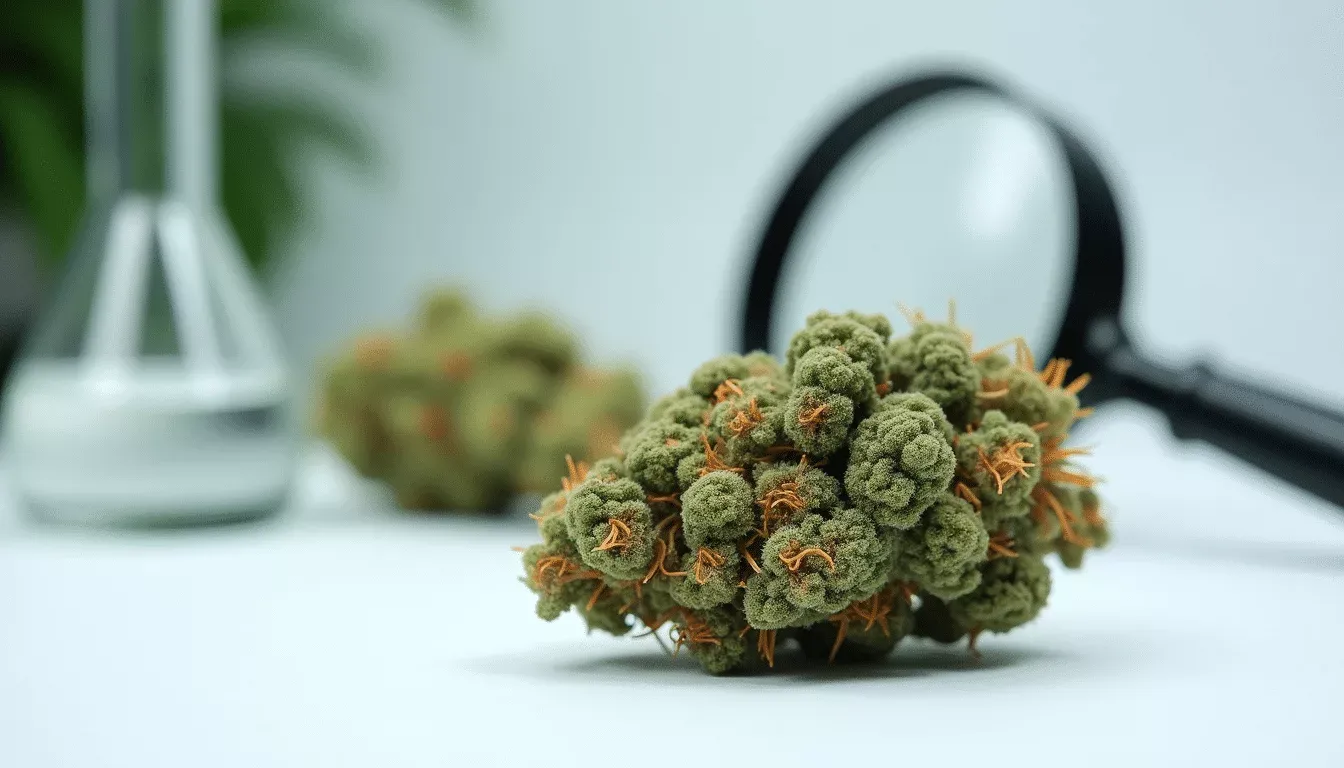Choosing the Right CBD or Delta Product for Your Wellness Journey
In a world increasingly focused on health and wellness, the interest in natural remedies has surged, particularly in products like CBD (Cannabidiol) and Delta-8 THC. Whether you’re seeking relief from stress, anxiety, pain, or simply aiming to enhance your overall well-being, selecting the right product can seem daunting. With a myriad of options flooding the market, understanding their benefits, uses, and how to select the right one for your personal needs is essential. This article will guide you through the nuances of CBD and Delta products, providing insights and actionable tips to help you navigate your wellness journey effectively.
Understanding CBD and Delta: What’s the Difference?
Let’s start with the basics. CBD and Delta-8 are both derived from the cannabis plant, but they come with distinct properties and effects. CBD is often celebrated for its therapeutic benefits, as it’s a cannabinoid that doesn’t produce the high associated with marijuana. Instead, it interacts with the body’s endocannabinoid system to help regulate functions like mood, pain perception, and sleep.
On the other hand, Delta-8 THC is a lesser-known cannabinoid that is gaining popularity for similar yet different reasons. While it offers a milder psychoactive effect than its more famous cousin, Delta-9 THC (commonly found in marijuana), it still provides a sense of relaxation and euphoria. This makes Delta-8 appealing for users seeking the benefits of THC without excessive intoxication.
With both CBD and Delta-8 in your wellness toolkit, understanding their unique characteristics can empower you to make informed decisions about which product may best suit your needs.
Exploring the Benefits: Why Choose CBD or Delta Products?
Both CBD and Delta-8 products come with benefits that resonate with a wide array of individuals. Here are some of the key advantages:
The Benefits of CBD
1. **Stress and Anxiety Relief**: Numerous studies indicate that CBD can reduce anxiety levels and stress responses. For example, a 2019 study published in the Journal of Psychopharmacology found that CBD significantly reduced social anxiety during public speaking.
2. **Pain Management**: CBD is often used as a natural alternative for pain relief. It may help alleviate chronic pain and inflammation by interacting with the body’s receptors. A report in 2018 noted that CBD could serve as a viable option for those seeking pain relief without the side effects of traditional pharmaceuticals.
3. **Improved Sleep Quality**: If sleep eludes you, CBD could be part of the solution. Many users report that CBD helps them fall asleep faster and experience deeper, more restful sleep. A small study found that sleep scores improved among participants using CBD.
The Benefits of Delta-8 THC
1. **Mild Psychoactive Effects**: Delta-8 provides a more subdued high than traditional Delta-9 THC, making it a suitable option for those who want to feel relaxed without losing their mental clarity. Users often describe the effects as uplifting yet manageable.
2. **Appetite Stimulation**: Like its Delta-9 counterpart, Delta-8 is known to stimulate appetite, which can benefit individuals undergoing treatments that diminish hunger, such as chemotherapy.
3. **Pain and Nausea Relief**: Delta-8 has been reported to help with pain relief and nausea, making it a promising option for those facing chronic pain conditions or dealing with the discomfort of digestive issues.
Navigating the Options: Tips for Choosing the Right Product
Now that you’re acquainted with the benefits of each product, it’s time to dive into how to select the right CBD or Delta product for your needs. Here are some actionable tips to guide you:
Know Your Needs
Before purchasing, take time to assess your wellness goals. Are you looking for pain relief, anxiety reduction, or better sleep quality? Understanding your primary needs will help narrow down your choices. For instance, if anxiety is your primary concern, you might lean towards CBD oils or capsules, which offer consistent dosage and effects.
Research Product Quality
Not all products are created equal, so it’s crucial to do your homework. Look for brands that provide third-party lab test results, ensuring their products are free from harmful substances and contain the advertised cannabinoid levels. Reputable brands will often share these results on their websites.
Additionally, consider the extraction methods used. CO2 extraction is considered the gold standard for obtaining high-quality CBD and Delta-8. Avoid products with vague ingredient lists or those containing synthetic additives.
Consider Dosing
Dosing can significantly impact your experience with CBD and Delta-8. For beginners, it’s advisable to start with a lower dose, gradually increasing until you find what works for you. Many manufacturers provide dosing guidelines based on the product type and the concentration of cannabinoids.
Check for Full Spectrum vs. Isolate
When selecting CBD, you’ll encounter terms like “full-spectrum,” “broad-spectrum,” and “isolate.” Full-spectrum CBD contains multiple cannabinoids, terpenes, and essential oils, enhancing the product’s effectiveness through what’s known as the “entourage effect.” If you’re concerned about THC content, broad-spectrum (which omits THC but retains other cannabinoids) or CBD isolate (pure CBD without other compounds) are good alternatives.
Consult a Professional
If you’re new to using cannabinoids or have specific health conditions, consider consulting a healthcare professional. They can provide tailored advice based on your health history and wellness goals, guiding you to the most suitable products.
Conclusion: Embrace Your Wellness Journey
Choosing the right CBD or Delta product can feel overwhelming, but by understanding the differences and benefits, you can confidently embark on your wellness journey. Whether you opt for CBD’s calming effects or Delta-8’s mild psychoactive properties, there’s no doubt that these products can be valuable tools for enhancing your well-being.
As you explore your options, remember to assess your needs, research product quality, consider dosing, and consult professionals when necessary. By doing so, you’ll be well-equipped to find the right product that aligns with your health goals.
Curious to learn more about the world of CBD and Delta products? Dive into resources like NCBI’s research articles or explore various product reviews and testimonials for firsthand experiences. Your ultimate goal is to support your well-being in the best way possible—so what are you waiting for? Start your exploration today!
FAQ: Choosing the Right CBD or Delta Product for Your Wellness Journey
1. What is the difference between CBD and Delta-8/Delta-9 THC?
CBD (cannabidiol) is a non-intoxicating compound known for its potential therapeutic benefits, while Delta-8 and Delta-9 THC are psychoactive cannabinoids that can create a high. Delta-8 is milder than Delta-9, offering balancing effects with less intensity.
2. How do I determine the right dosage of CBD or Delta product for me?
Start with a low dose and gradually increase until you find what works best for you. Factors like your body weight, metabolism, and desired effects play a role. Consulting a healthcare provider can also provide personalized guidance.
3. Can I take CBD or Delta products with other medications?
Yes, but it’s essential to consult with your healthcare provider first. CBD and Delta products can interact with certain medications, which may alter how they work or increase side effects.
4. What should I look for in a quality CBD or Delta product?
Seek products that have been third-party tested, contain transparent labeling of cannabinoid content, are sourced from organic hemp, and have user-friendly extraction methods. Reviews and certifications can also indicate quality.
5. Are there any side effects associated with CBD or Delta products?
While generally well-tolerated, some users may experience side effects like drowsiness, dry mouth, or changes in appetite. If you experience any adverse reactions, it’s best to discontinue use and consult a healthcare professional.
Share this content:



